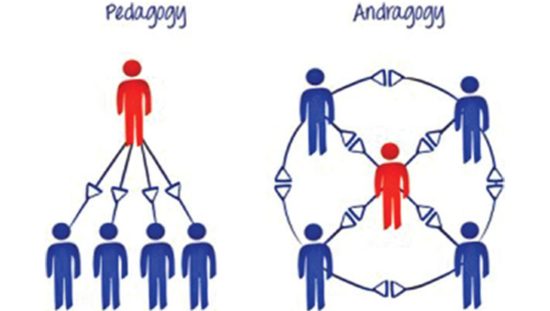Non-formal education includes adult basic education, adult literacy education or school equivalency preparation.
In non-formal learning, someone (who is not in school) can learn literacy, other basic skills or job skills.
Non-formal education is imparted consciously and deliberately and systematically implemented. It should be organized for a homogeneous group. Non-formal, education should be programmed to serve the needs of the identified group. This will necessitate flexibility in the design of the curriculum and the scheme of evaluation.
Examples of Non-formal Learning
- Boy Scouts and Girls Guides develop some sports program such as swimming comes under non-formal learning.
- Fitness programs.
- Community-based adult education courses.
- Free courses for adult education developed by some organization.
- Distance education and extension education programs through Open University.
- Home education, individualized instruction (such as programmed learning), and computer-assisted instruction are other possibilities.
Key features of Non-formal Education
- The non-formal learning is planned and takes place apart from the school system.
- The timetable and syllabus can be adjustable.
- Unlike theoretical formal education, it is practical and vocational education.
- Non-formal education has no age limit.
- Fees or certificates may or may not be necessary.
- It may be full time or part-time learning and one can earn and learn together.
- It involves learning of professional skills.
Strengths of Non-formal Education
- Practiced and vocational training.
- Naturally growing minds that do not wait for the system to amend.
- Literacy with skillfulness growth in which self-learning is appreciated.
- Flexibility in age, curriculum and time.
- Open-ended educational system in which both the public and private sector are involved in the process.
- No need to conduct regular exams.
- Diploma, certificates, and award are not essential to be awarded.
Limitations of Non-formal Education
- Attendance of participants is unsteady.
- Sometimes, it’s just wastage of time as there is no need to conduct the exam on regular basis and no degree/diploma is awarded at the end of the training session.
- Basic reading and writing skills are crucial to learn.
- No professional and trained teachers.
- Students may not enjoy full confidence as the regular students enjoy.
- Some institutes provide fake certification through online courses just for the sake of earning.
OTHER RELATED POSTS



